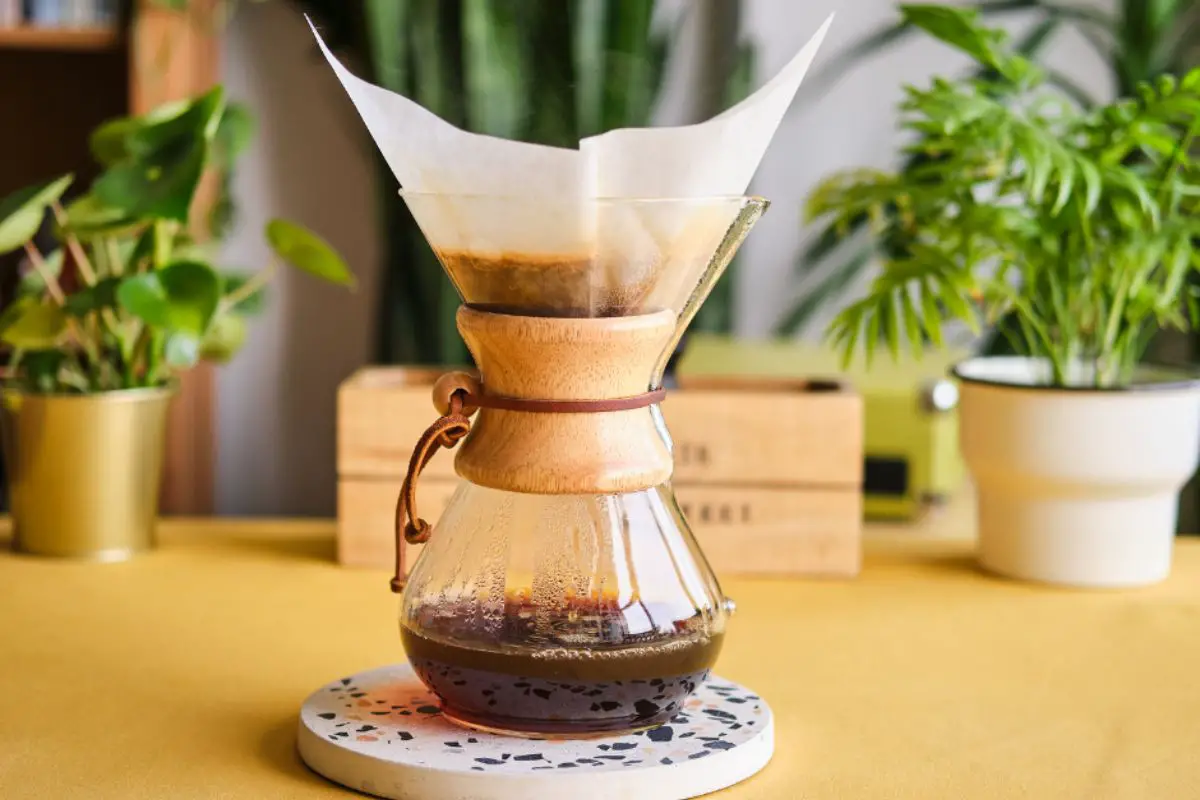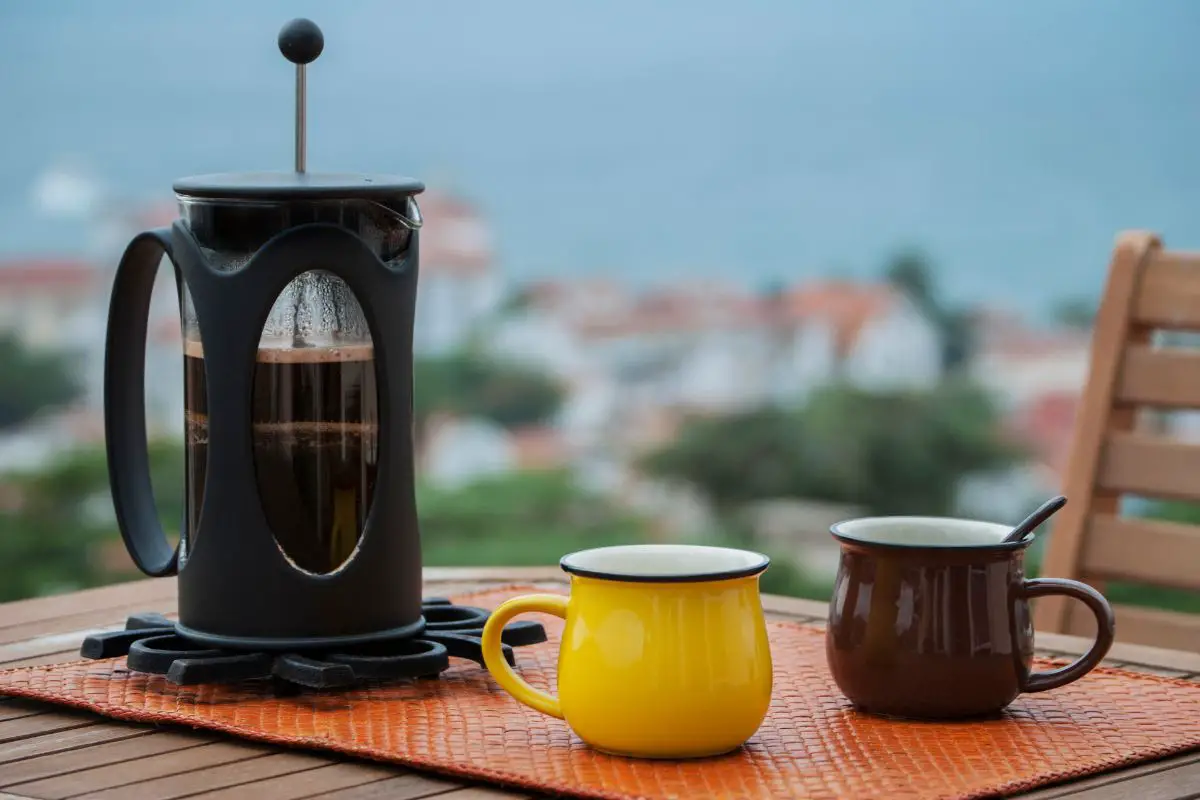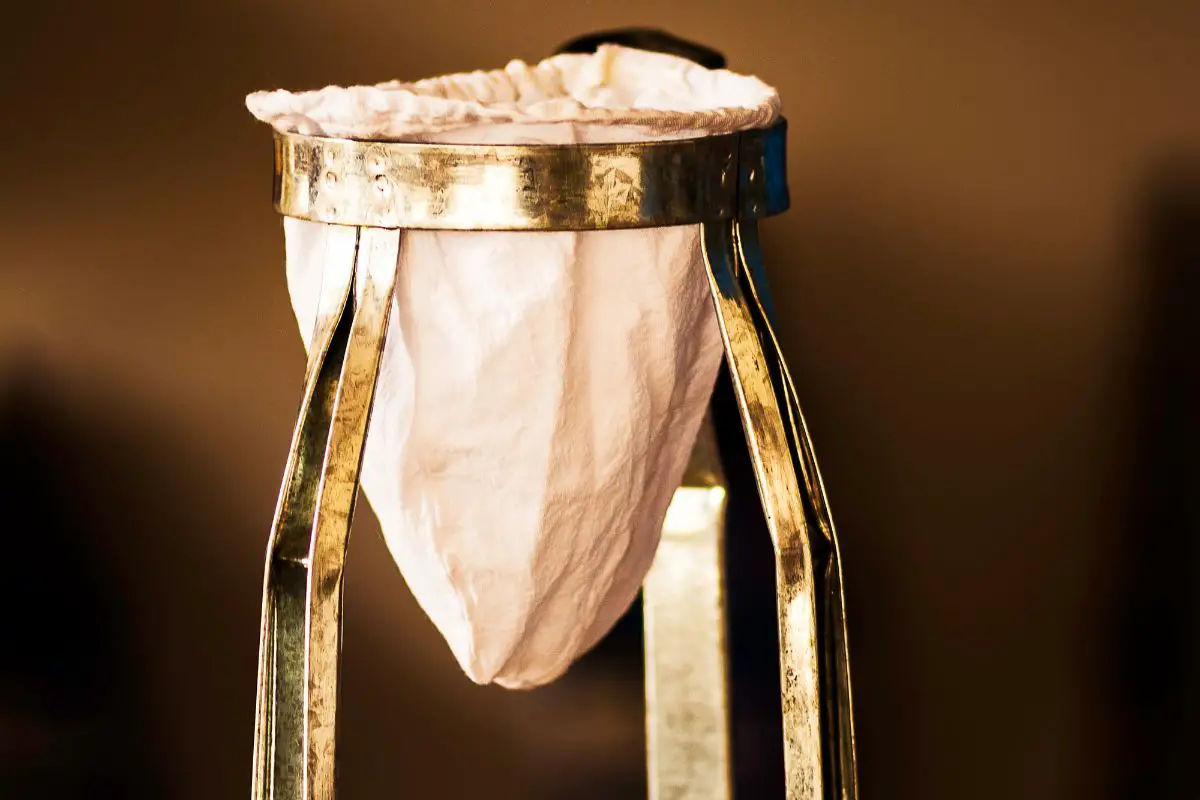In the realm of coffee brewing, a critical element often overlooked is the humble coffee filter. This unassuming tool, responsible for straining out unwanted sediment and oils, is often taken for granted.

However, what if, in the midst of your morning routine, you find yourself without a coffee filter? Fear not, as this article presents a comprehensive guide on coffee filter substitutes that will ensure a safe and enjoyable cup of joe.
Through meticulous research and experimentation, we have compiled a list of alternative options that can effectively filter your coffee grounds. From readily available household items such as paper towels or napkins, to more specialized tools like cheesecloth or muslin cloth, we have explored various methods to achieve a comparable filtering effect.
Additionally, we delve into unconventional solutions, such as utilizing a fine mesh sieve or strainer, a French press, or even tea bags and infusers. For the truly resourceful, we even explore the possibility of creating an improvised filter using a clean sock or cloth.
By providing these alternatives, we aim to equip coffee enthusiasts with practical solutions, ensuring a safe and satisfying brewing experience.
Key Takeaways
- Coffee filters are important for straining out sediment and oils.
- Alternative options for coffee filter substitutes include paper towels, napkins, cheesecloth, muslin cloth, fine mesh sieves, strainers, French presses, tea bags, and tea infusers.
- Improvised filters using a clean sock or cloth can be used when traditional equipment is not available, but the fabric should have a fine weave.
- Tea enthusiasts can follow these guidelines for a freshly brewed cup of tea.
Paper towel or napkin
Paper towels and napkins are frequently suggested as alternatives to coffee filters due to their porous nature and ability to trap coffee grounds effectively. These household items offer a convenient solution when a coffee filter is unavailable or in emergencies.
However, it is essential to note that not all paper towels and napkins are suitable substitutes for coffee filters. While the porous structure of paper towels and napkins allows the liquid to pass through, some may disintegrate or tear when wet, resulting in a messy coffee brew. To ensure safety and prevent any unwanted debris from entering the coffee, it is recommended to opt for high-quality, durable paper towels or napkins. Look for those that are made with strong fibers and have a dense construction.
Additionally, it is crucial to double or triple layer the paper towel or napkin to enhance its filtering capabilities. By doing so, you can effectively minimize the risk of coffee grounds seeping through into the final brew.
Transitioning to the subsequent section about ‘cheesecloth or muslin cloth,’ these alternatives provide a more robust filtration method for coffee enthusiasts seeking an alternative to traditional coffee filters.
Cheesecloth or muslin cloth
Cheesecloth or muslin cloth, with their porous texture, offer a deceptive solution to the liquid’s desperate attempt to escape its confinements. These fabrics are commonly used as substitutes for coffee filters due to their ability to trap coffee grounds effectively while allowing the liquid to pass through.
Cheesecloth, made from loosely woven cotton, provides a fine mesh that prevents coffee grounds from entering the final brew. Muslin cloth, on the other hand, is a plain weave cotton fabric that offers similar filtering capabilities.
When using cheesecloth or muslin cloth as a coffee filter substitute, it is important to ensure that the fabric is clean and free from any chemicals or contaminants that could alter the taste or safety of the coffee. It is recommended to wash the fabric thoroughly before use and avoid using any fabric softeners or detergents that may leave residues. Additionally, it is crucial to securely tie or fasten the cloth to prevent any grounds from escaping into the coffee.
Transitioning into the subsequent section about ‘fine mesh sieve or strainer,’ these alternatives provide an even finer level of filtration, ensuring a clean and particle-free coffee.
Fine mesh sieve or strainer
Utilizing a fine mesh sieve or strainer presents a refined method of extracting a smooth and debris-free liquid, ensuring a more enjoyable drinking experience. This method involves pouring the brewed coffee through the sieve or strainer, which effectively captures the coffee grounds and prevents them from ending up in the final cup.
The fine mesh of the sieve or strainer acts as a barrier, allowing only the liquid to pass through while retaining any solid particles. This process is particularly helpful for those who desire a cleaner cup of coffee, free from any unwanted sediments.
One of the advantages of using a fine mesh sieve or strainer is its versatility. It can be employed with various brewing methods, such as pour-over or drip brewing. Additionally, it can be easily cleaned and reused, making it a cost-effective alternative to traditional coffee filters. However, it is important to note that while a fine mesh sieve or strainer can effectively remove larger coffee grounds, it may not be as effective in capturing finer particles. Therefore, for those seeking a more refined extraction method, other alternatives like the french press or coffee press may be more suitable.
Transitioning to the next section, the french press or coffee press offers another option for brewing coffee without a traditional coffee filter.
French press or coffee press

The French press or coffee press offers an innovative approach to extracting a rich and flavorful brew, providing a unique alternative for those seeking a distinct coffee experience. This brewing method involves steeping coffee grounds in hot water and then pressing a plunger to separate the brewed coffee from the grounds.
Here are three reasons why the French press is worth considering:
- Enhanced Flavor: The French press allows for a full immersion brewing process, which ensures that the coffee grounds are in direct contact with the water for a longer period of time. This results in a bolder and more robust flavor profile, as the oils and flavors are fully extracted from the grounds.
- Customizable Strength: With a French press, you have control over the strength of your coffee. By adjusting the coffee-to-water ratio and the steeping time, you can easily tailor your brew to your preferred taste and caffeine level.
- Sustainable Choice: Using a French press eliminates the need for disposable coffee filters, reducing waste and environmental impact. The stainless steel or glass construction of the French press also ensures durability, making it a long-lasting and cost-effective option.
Transition into the subsequent section about ‘tea bags or tea infuser’:
In addition to its versatility in brewing coffee, the French press can also be used to brew tea, providing a seamless transition for those who prefer tea bags or tea infusers.
Tea bags or tea infuser
Tea bags and tea infusers offer convenient options for brewing tea, presenting a contrast to the French press method. While the French press allows for a stronger and bolder flavor, tea bags and tea infusers provide a more controlled and milder taste. Tea bags are simple and widely available, making them a popular choice among tea enthusiasts. They consist of pre-packaged portions of tea leaves enclosed in porous bags, allowing for easy brewing. On the other hand, tea infusers, also known as tea balls or tea strainers, are small metal or silicone devices that hold loose tea leaves. They can be placed directly into a cup or teapot, allowing the tea to steep while keeping the leaves contained.
To visually depict the differences between the French press method and the tea bag and tea infuser options, the following table can be used:
| French Press | Tea Bag | Tea Infuser | |
|---|---|---|---|
| Convenience | Moderate | High | High |
| Flavor | Strong | Controlled | Controlled |
| Cleanup | Moderate | Minimal | Minimal |
| Cost | Moderate | Low | Low |
Considering the ease of use, minimized mess, and lower costs associated with tea bags and tea infusers, they present convenient alternatives for those seeking a safer and more controlled brewing experience. As we transition to the next section about improvised filters using a clean sock or cloth, it is essential to explore additional options for those who may not have access to traditional brewing equipment.
Improvised filter using a clean sock or cloth

An alternative option for straining tea leaves involves using a clean sock or cloth as an improvised filter. This method can be a quick and easy solution when a tea bag or infuser is not readily available. However, it is important to ensure that the sock or cloth is clean and free from any contaminants that may compromise the safety and taste of the tea.
Here are some key points to consider when using a clean sock or cloth as an improvised filter:
- Choose a clean sock or cloth: Make sure the sock or cloth is thoroughly washed and free from any detergent residue or odors that may affect the taste of the tea.
- Use a fine-weave fabric: Opt for a fabric with a tight weave to effectively strain the tea leaves and prevent them from seeping into the tea.
- Secure the sock or cloth tightly: Wrap the sock or cloth around the opening of the cup or teapot and secure it tightly with a rubber band or string to prevent any loose tea leaves from escaping.
- Handle with caution: Be careful when removing the sock or cloth from the hot tea to avoid burning yourself.
By following these guidelines, tea enthusiasts can enjoy a freshly brewed cup of tea using an improvised filter made from a clean sock or cloth.
Frequently Asked Questions
Can I use a paper towel or napkin as a coffee filter substitute?
Using a paper towel or napkin as a coffee filter substitute is not recommended. While it may seem like a convenient solution, these materials lack the necessary filtration properties, potentially compromising the safety and taste of the coffee.
How do I use cheesecloth or muslin cloth as a coffee filter substitute?
Cheesecloth or muslin cloth can be used as a coffee filter substitute by placing the cloth over a container, securing it tightly, and pouring hot water slowly through it. This method may result in a slightly different taste and texture of the coffee.
Is a fine mesh sieve or strainer an effective alternative to a coffee filter?
A fine mesh sieve or strainer can serve as an effective alternative to a coffee filter. It allows the liquid to pass through while preventing grounds from entering the brewed coffee, ensuring a safe and enjoyable drinking experience.
Can I use a French press or coffee press as a makeshift coffee filter?
A French press or coffee press can be used as a makeshift coffee filter. However, it is important to note that these methods may not produce the same level of filtration as a traditional coffee filter, potentially resulting in sediment in the brewed coffee.
Is it possible to use tea bags or a tea infuser to brew coffee as a substitute for a coffee filter?
Using tea bags or a tea infuser as a substitute for a coffee filter is not recommended. The materials and pore sizes of these items are designed for different purposes, potentially resulting in a subpar coffee experience and possible safety concerns.
Conclusion
In conclusion, there are several alternatives to using a coffee filter when brewing your favorite cup of joe.
Paper towels or napkins can serve as a makeshift filter, while cheesecloth or muslin cloth can strain out coffee grounds effectively.
Fine mesh sieves or strainers can also be used for this purpose.
Additionally, French presses or tea bags can produce a similar result.
For a more creative approach, an improvised filter can be made using a clean sock or cloth.
So, don’t let the absence of a coffee filter stop you from enjoying your morning brew – get creative and try one of these substitutes! Remember, necessity is the mother of invention.
Also read: